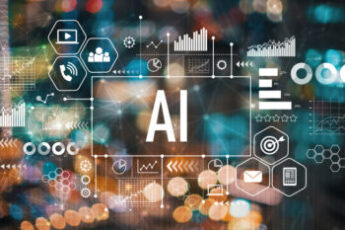Digital Marketing has undergone a significant transformation in recent years, thanks to advancements in artificial intelligence (AI) technology. AI has emerged as a powerful tool that enables businesses to gather valuable insights, automate processes, and deliver personalized experiences to their customers.
AI is shaping digital marketing and revolutionizing the way businesses engage with their audience.
In recent years, artificial intelligence (AI) has emerged as a powerful tool revolutionizing various industries, and digital marketing is no exception.
AI in digital marketing is transforming the way businesses approach their marketing strategies, enabling them to make data-driven decisions, personalize user experiences, automate processes, and optimize campaigns.
We will explore the ways in which AI is shaping the landscape of digital marketing and its impact on businesses.
Data-driven Decision Making:
One of the key contributions of AI to digital marketing is its ability to process vast amounts of data quickly and accurately. AI-powered algorithms can analyze consumer behaviour, demographics, purchase history, and other relevant data points to identify patterns, trends, and insights.
This data-driven approach allows marketers to make informed decisions and optimize their marketing strategies based on real-time information.
Enhanced Data Analysis and Insights:
Artificial intelligence empowers marketers with advanced data analysis capabilities. With AI algorithms, businesses can process large volumes of data in real-time, enabling them to gain valuable insights into consumer behaviour, preferences, and market trends.
AI-powered analytics tools can extract patterns, identify correlations, and make predictions, allowing marketers to make informed decisions based on accurate and up-to-date information.
Personalized User Experiences:
AI enables marketers to deliver personalized experiences to consumers at scale. Through machine learning algorithms, AI can analyze user data, such as browsing behaviour, purchase history, and demographics, to create highly targeted and customized marketing campaigns.
Personalized recommendations, tailored content, and dynamic pricing are some of the ways AI is enhancing user experiences, driving engagement, and increasing conversions.
Chatbots and Virtual Assistants:
AI-powered chatbots and virtual assistants have become an integral part of digital marketing strategies.
These intelligent agents can interact with users in real-time, answering queries, providing product recommendations, and assisting with purchases.
Chatbots not only enhance customer service but also help in lead generation, data collection, and nurturing customer relationships. They provide 24/7 support, ensuring prompt and efficient communication with customers.
Enhanced Customer Segmentation:
AI enables marketers to segment their audience more effectively by creating dynamic customer profiles based on individual preferences, behaviours, and interests.
By leveraging AI algorithms, businesses can deliver highly targeted and personalized content to each segment, increasing engagement and conversion rates.
This level of segmentation helps marketers tailor their messages to resonate with specific customer groups, improving overall campaign effectiveness.
Content Creation and Curation:
Artificial intelligence is transforming the content creation process. AI algorithms can generate written content, such as blog posts, social media updates, and product descriptions, based on predefined parameters and data inputs.
This automation saves time and resources for marketers, allowing them to focus on strategy and creativity. AI can also curate content by analyzing user preferences and recommending relevant articles, videos, and products, thereby enhancing content discovery and engagement.
Predictive Analytics and Campaign Optimization:
AI-powered predictive analytics helps marketers optimize their digital marketing campaigns. By analyzing historical data and patterns, AI algorithms can forecast consumer behaviour, identify the most effective channels, and predict campaign outcomes.
Marketers can leverage this information to allocate budgets, optimize ad placements, and refine targeting strategies, leading to improved ROI and campaign performance.
Improved Ad Targeting and Personalization:
AI has significantly enhanced the accuracy of ad targeting and personalization. By leveraging AI algorithms, marketers can analyze user behaviour, preferences, and contextual information to deliver highly relevant ads to their target audience.
This level of precision not only increases the likelihood of conversions but also improves the user experience by reducing irrelevant or intrusive ads.
Social Media Listening and Sentiment Analysis:
AI plays a crucial role in monitoring and analyzing social media conversations. Through natural language processing (NLP) techniques, AI can identify sentiments, track brand mentions, and monitor customer feedback.
Marketers can gain real-time insights into customer opinions, trends, and brand reputation, enabling them to respond promptly, manage crises, and make data-driven decisions to improve their products and services.
Marketing Automation:
AI-powered marketing automation tools have streamlined repetitive tasks, such as email marketing, social media scheduling, and campaign management. T
hese tools can segment audiences, trigger personalized messages based on user actions, and optimize campaign performance.
By automating these processes, marketers can save time and resources while delivering more timely and relevant messages to their customers.
Image and Video Recognition:
Visual content is gaining prominence in digital marketing, and AI technology is making it easier to analyze and leverage visual data.
AI-powered image and video recognition tools can automatically tag, categorize, and analyze visual content, enabling marketers to understand consumer preferences, create targeted visual campaigns, and optimize visual elements for maximum impact.
Voice Search Optimization:
The rise of voice assistants like Siri, Alexa, and Google Assistant has transformed the way users search for information online. AI technologies enable businesses to optimize their content for voice search queries, ensuring that their brand appears in voice search results.
Voice search optimization requires understanding natural language, user intent, and context, which AI algorithms excel at, making it an essential component of digital marketing strategies.
Conclusion:
Artificial intelligence is revolutionizing the digital marketing landscape by empowering marketers with advanced data analysis, personalization, automation, and optimization capabilities.
From data-driven decision making to chatbots, content generation, and automation, AI is driving efficiency, effectiveness, and customer-centricity in digital marketing campaigns.
By leveraging AI technology, businesses can gain valuable insights, deliver personalized experiences, automate tasks, and enhance campaign performance.
As AI continues to evolve, it will undoubtedly shape the future of digital marketing, enabling businesses to stay competitive, connect with customers on a deeper level, and drive growth in the ever-changing digital landscape.
